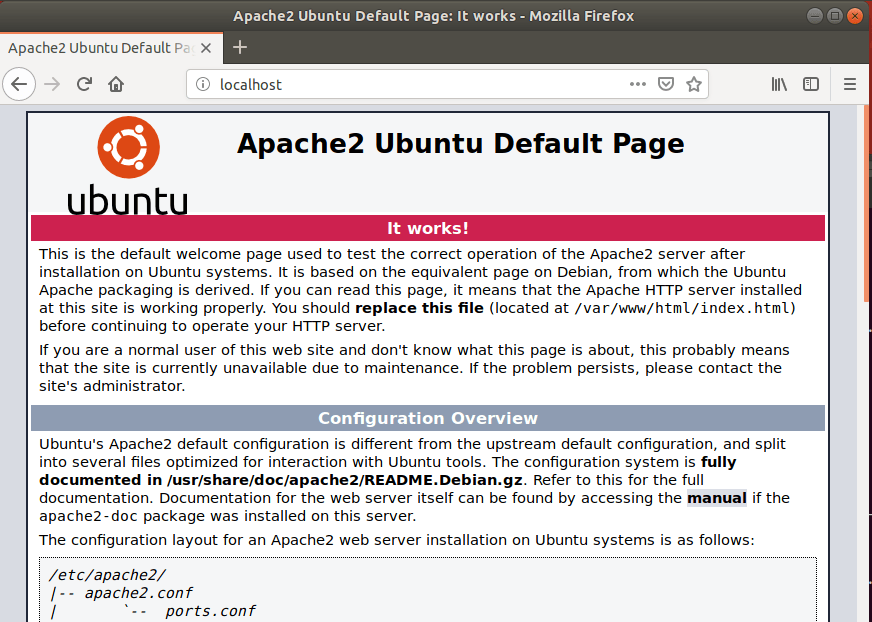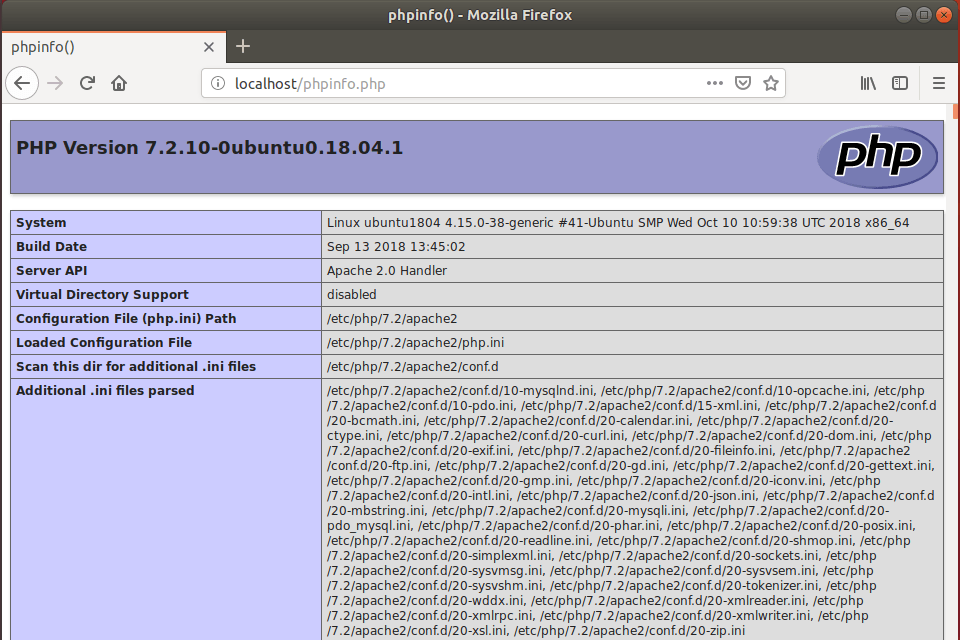If you want a CMS and an eCommerce platform in one suite that is scalable and performs at a high level, then Rubedo CMS is a good place to start. Rubedo CMS is built on an open-source core with support for open standards, which might be very useful in helping you run your digital content. This CMS platform is designed for ease of use to allow enterprises and business owners to collaborate and automate engaging experiences with users across multiple devices, including mobile. For more about Rubedo CMS, please check their Homepage To get started with installing Rubedo, follow the steps below:
Install Apache2 HTTP Server
Rubedo CMS requires a web server and the Apache2 HTTP server is the most popular open-source web server available today. To install the Apache2 server, run the commands below: After installing Apache2, the commands below can be used to stop, start and enable the Apache2 service to always start up with the server boots. Now that Apache2 is installed. to test whether the web server is working, open your browser and browse to the URL below. If you see the page above, then Apache2 is successfully installed.
Install MongoDB
To get the latest version of MongoDB, you must add its repository to Ubuntu. to do that, run the commands below to add the official repository key. After adding the repository key to Ubuntu, run the commands below to add the MongoDB repository to your system… Now that the repository and key have been added to Ubuntu, run the commands below to install the package. By default, MongoDB listens on port 27017. after installing, the local server should be able to communicate with MongoDB. to verify whether MongoDB is running and active, run the commands below: You should see something like the lines below:
Install PHP 7.2 and Related Modules
Rubedo CMS is a PHP-based CMS and PHP is required. However, PHP 7.2 may not be available in Ubuntu’s default repositories. To run PHP 7.2 on Ubuntu 16.04 and previous, you may need to run the commands below: Then update and upgrade to PHP 7.2 Next, run the commands below to install PHP 7.2 and related modules. After installing PHP 7.2, run the commands below to open the PHP default configuration file for Apache2. The lines below are a good setting for most PHP-based CMS. Update the configuration file with these and save. Every time you make changes to the PHP configuration file, you should also restart the Apache2 web server. To do so, run the commands below: Now that PHP is installed, to test whether it’s functioning, create a test file called phpinfo.php in the Apache2 default root directory. ( /var/www/html/) Then type the content below and save the file. Next, open your browser and browse to the server’s hostname or IP address followed by phpinfo.php You should see the PHP default test page.
Download Rubedo Latest Release
To get Rubedo latest release you may want to download it from its download page. Install Composer, Curl and other dependencies to get started… After installing curl and Composer above, change into the Apache2 root directory and download Rubedo packages from GitHub… Always replace the branch number with the latest branch…. Download and extract the downloaded content into the Apache2 root directory. After that, run the installer script to download requirements via Composer Then run the commands below to set the correct permissions for the Rubedo root directory and give Apache2 control.
Configure Apache2
Finally, configure the Apahce2 site configuration file for Rubedo. This file will control how users access Rubedo content. Run the commands below to create a new configuration file called rubedo.conf Then copy and paste the content below into the file and save it. Replace the highlighted line with your domain name and directory root location. Save the file and exit.
Enable the Rubedo and Rewrite Module
After configuring the VirtualHost above, enable it by running the commands below Then open your browser and browse to the server domain name. You should see the Rubedo setup wizard complete. Please follow the wizard carefully. Then follow the on-screen instructions and complete the setup. That’s it! Congratulation! You have successfully installed Rubedo CMS on Ubuntu 16.04 | 18.04 and 18.10. You may also like the post below:



